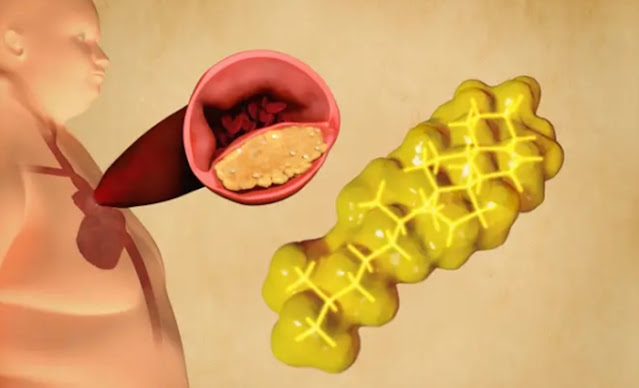Statistics reveal that around 20 percent of people in the United States have abnormally high cholesterol. High cholesterol is a major factor of risk in heart disease and therefore it needs to be reduced to normal levels in order to maintain the health of the organism.
In some people, high cholesterol levels can be lowered through the means of a healthy diet and proper physical exercise. However, people with genetic predispositions to heart disease and cholesterol accumulation sometimes also require medications for lowering blood cholesterol levels.
Some people have high cholesterol levels due to liver hyperactivity or other internal dysfunctions. For this category of people, appropriate diet, frequent physical exercise, and lifestyle improvements aren't sufficient in normalizing blood cholesterol values.
There are many factors that facilitate the accumulation of cholesterol inside the bloodstream. An unhealthy diet, a sedentary lifestyle, smoking, and alcohol abuse all contribute to cholesterol accumulation in the organism. However, age, gender, and genetic heritage are also major factors that determine either overproduction or inappropriate elimination of blood cholesterol.
High cholesterol levels are usually characteristic of people with ages over 50. Women generally have lower blood cholesterol levels than men.
However, post-menopausal women have higher blood cholesterol levels than young men. Genetic heritage also affects blood cholesterol levels and people with a family history of cardiovascular diseases usually have high cholesterol and are very exposed to developing heart disease.
Cholesterol is needed inside the organism in very small quantities. In excess, the substance can cause a lot of damage to arteries, tissues, and body organs, perturbing normal blood circulation. By clogging the coronary arteries, cholesterol increases the risk of heart disease.
Cholesterol is a viscous substance produced by the liver. This substance has a very important role in synthesizing vitamin D. Cholesterol is also required for producing hormones (testosterone and estrogen) and bile salts that contribute to the digestion of fat.
The best thing to do when you have high cholesterol is to keep a good diet. Although diet alone can't always overcome cholesterol problems, it can considerably reduce "bad cholesterol". "Bad cholesterol" (low-density lipoprotein) is very harmful to the body and it is the major factor of risk in heart disease.
By following a diet rich in complex carbohydrates, natural fibers, and unsaturated fat you can normalize blood cholesterol levels. In order to reduce blood cholesterol levels, you should avoid foods that are rich in saturated fat (animal products) and include more vegetables and fruits in your diet. Fresh fruits are rich in vitamins, minerals, and fibers that can help in decongesting the arteries filled with cholesterol deposits.
You should avoid smoking and alcohol, as they are known to facilitate the accumulation of cholesterol inside the body. People with high cholesterol levels should exercise regularly and lose extra pounds, as obesity is also a factor of risk for heart disease.
High cholesterol levels are reversible and if nothing seems to be working for you, there are medical treatments that can improve your condition.
Cure High Cholesterol By Cutting Out This ONE Ingredient
You’re about to learn how cutting out ONE, single ingredient lowers your cholesterol level below 100 and clears out up to 93% of clogged arteries — starting today!
Preventing diseases such as stroke and heart attack. Plus loading you with power and vigor.
Discover how to:
- Completely clean out the plaque buildup in your arteries
- Drop your cholesterol to a healthy level
- And boost your physical and mental energy to a level you didn’t think possible
…all by cutting out just ONE simple ingredient, you didn’t even know you were consuming.
Based on a little-known secret, previously only available to the rich and famous.
What is this ONE ingredient you need to cut out? Learn more and try it out for yourself here…


